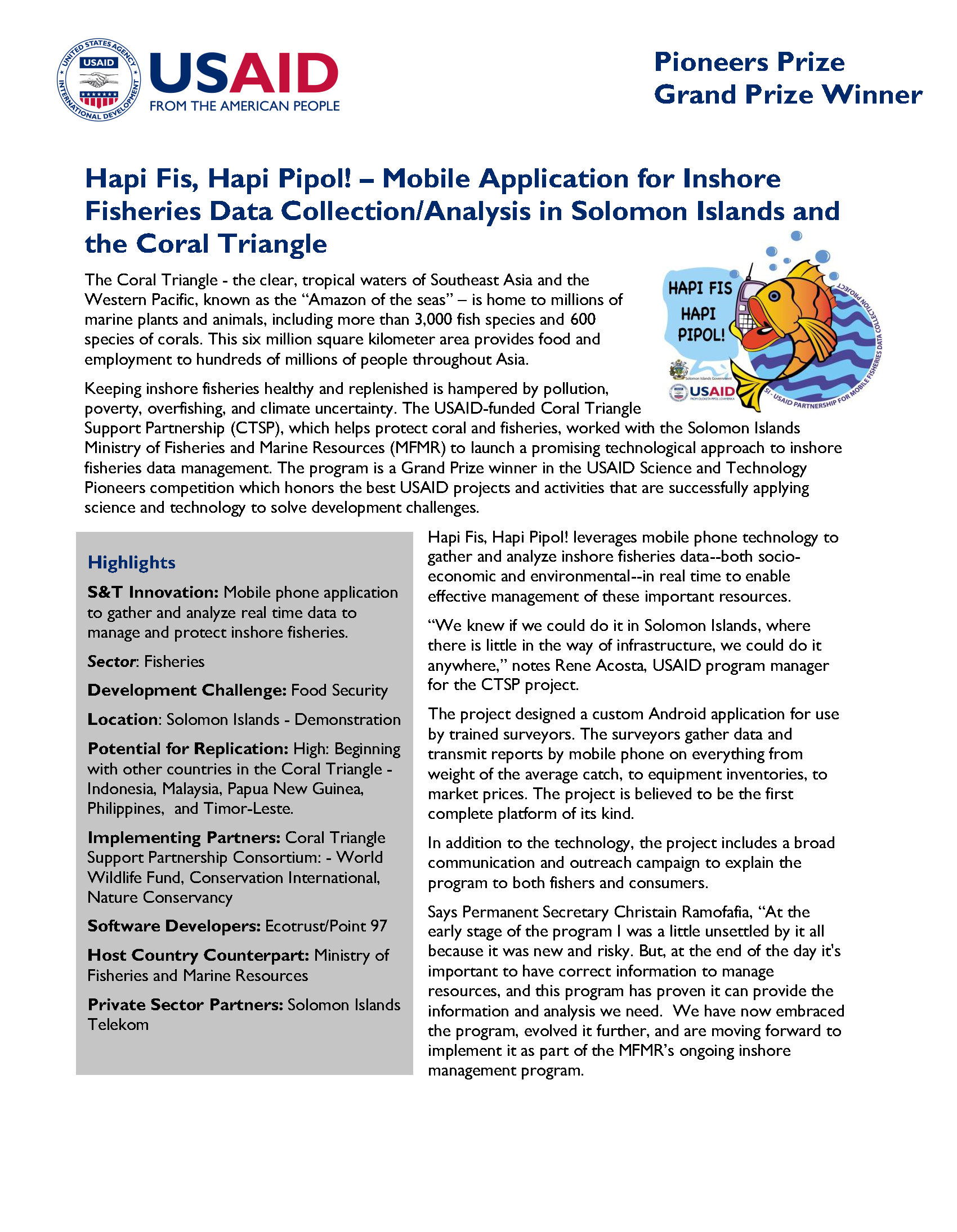Hapi Fis, Hapi Pipol! – Mobile Application for Inshore Fisheries Data Collection/Analysis in Solomon Islands and the Coral Triangle
Highlights
The Coral Triangle - the clear, tropical waters of Southeast Asia and the Western Pacific, known as the “Amazon of the seas” – is home to millions of marine plants and animals, including more than 3,000 fish species and 600 species of corals. This six million square kilometer area provides food and employment to hundreds of millions of people throughout Asia.
Keeping inshore fisheries healthy and replenished is hampered by pollution, poverty, overfishing, and climate uncertainty. The USAID-funded Coral Triangle Support Partnership (CTSP), which helps protect coral and fisheries, worked with the Solomon Islands Ministry of Fisheries and Marine Resources (MFMR) to launch a promising technological approach to inshore fisheries data management. The program is a Grand Prize winner in the USAID Science and Technology Pioneers competition which honors the best USAID projects and activities that are successfully applying science and technology to solve development challenges.
Hapi Fis, Hapi Pipol! leverages mobile phone technology to gather and analyze inshore fisheries data--both socio-economic and environmental--in real time to enable effective management of these important resources. “We knew if we could do it in Solomon Islands, where there is little in the way of infrastructure, we could do it anywhere,” notes Rene Acosta, USAID program manager for the CTSP project.
The project designed a custom Android application for use by trained surveyors. The surveyors gather data and transmit reports by mobile phone on everything from weight of the average catch, to equipment inventories, to market prices. The project is believed to be the first complete platform of its kind.
In addition to the technology, the project includes a broad communication and outreach campaign to explain the program to both fishers and consumers.
Says Permanent Secretary Christain Ramofafia, “At the early stage of the program I was a little unsettled by it all because it was new and risky. But, at the end of the day it's important to have correct information to manage resources, and this program has proven it can provide the information and analysis we need. We have now embraced the program, evolved it further, and are moving forward to implement it as part of the MFMR’s ongoing inshore management program.








Comment
Make a general inquiry or suggest an improvement.